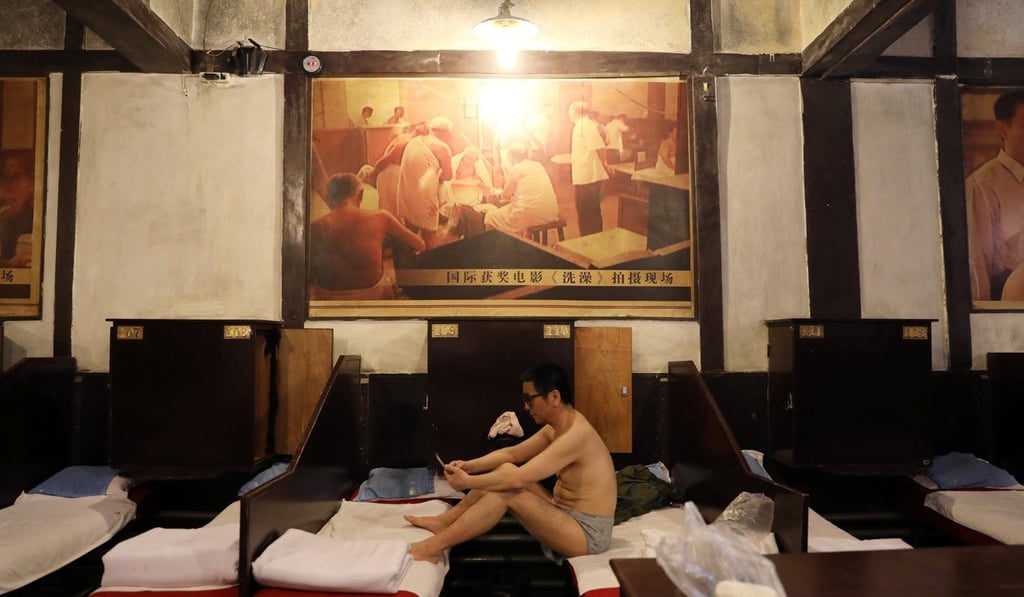Last days of Beijing’s oldest bathhouse, a place for rubdowns, cricket fights, and Chinese chess
- Demolition threatens Shuang Xing Tang, the Chinese capital’s last traditional bathhouse, built in 1916 but standing in the way of urban redevelopment
- It’s a place for no-frills communal bathing popular with older men, and hardly makes money, but it’s a place for friends to meet – and bring their songbirds

Under a glass roof, groups of old men laze around two large pools, wallow in the warm baths, or relax under a row of shower heads. Lying on their stomachs on benches, others get a rubdown with damp towels courtesy of the bathhouse’s staff.
Communal bathing is a popular custom among older men in China. Yet many of the country’s traditional bathhouses, where patrons can spend a whole day pampering themselves for a pittance, have given way to pricier modern massage parlours and entertainment complexes where the added attractions may include petite hostesses, karaoke, snooker and a buffet.
Shuang Xing Tang, by comparison, is a no-frills establishment. Located in the township of Nanyuan, in suburban Fengtai district, it is the last traditional bathhouse standing in Beijing. The basic fee for entry and bathing is just 30 yuan (US$4), while extras, such as bath salts, a rubdown or cupping, cost between 10 and 20 yuan.

Shuang Xing Tang, which occupies two floors, was founded by labourer Wang Shuangkui in 1916. Nanyuan had been the location of a military barracks during the Qing dynasty. After the foundation of the Republic of China in 1911, it continued to be a base for garrisons of various regional cliques during the Warlord Era (1916-1928). With only a handful of bathhouses in Nanyuan, Wang saw untapped demand from weary soldiers stationed in the area.
After a period in which the bathhouse was nationalised by the communist government, it was taken over by businessman Xiong Zhizhong in 2003. Today it is run by his son, Xiong Gangjian, 34.